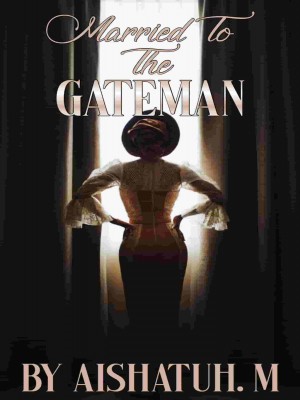
Timothy Crump's Ward: A Story of American Life
IT was drawing towards the close of the last day of the year. A few hours more, and 1836 would be no more.It was a cold day. There was no snow on the ground, but it was frozen into...
IT was drawing towards the close of the last day of the year. A fewhours more, and 1836 would be no more.
It was a cold day. There was no snow on the ground, but it was frozeninto stiff ridges, making it uncomfortable to walk upon. The sun hadbeen out all day, but there was little heat or comfort in its bright,but frosty beams.
The winter is a hard season for the poor. It multiplies theirnecessities, while, in general, it limits their means and opportunitiesof earning. The winter of 1836-37 was far from being an exception tothis rule. It was worse than usual, on account of the general stagnationof business.
In an humble tenement, located on what was then the outskirts of NewYork, though to-day a granite warehouse stands on the spot, livedTimothy Crump, an industrious cooper. His family consisted of a wifeand one child, a boy of twelve, whose baptismal name was John, thoughinvariably addressed, by his companions, as Jack.
There was another member of the household who would be highly offendedif she were not introduced, in due form, to the reader. This was MissRachel Crump, maiden sister of Uncle Tim, as he was usually designated.
Miss Rachel was not much like her brother, for while the latter was agood-hearted, cheerful easy man, who was inclined to view the world inits sunniest aspect, Rachel was cynical, and given to misanthropy. PoorRachel, let us not be too hard upon thy infirmities. Could we liftthe veil that hides the secrets of that virgin heart, it might be,perchance, that we should find a hidden cause, far back in the days whenthy cheeks were rounder and thine eyes brighter, and thine aspect notquite so frosty. Ah, faithless Harry Fletcher! thou hadst some hand inthat peevishness and repining which make Rachel Crump, and all abouther, uncomfortable. Lured away by a prettier face, you left her to passthrough life, unblessed by that love which every female heart craves,and for which no kindred love will compensate. It was your faithlessnessthat left her to walk, with repining spirit, the flinty path of the oldmaid.
Yes; it must be said--Rachel Crump was an old maid; not from choice,but hard necessity. And so, one by one, she closed up the avenues of herheart, and clothed herself with complaining, as with a garment. Beingunblessed with earthly means, she had accepted the hearty invitationof her brother, and become an inmate of his family, where she paidher board by little services about the house, and obtained sufficientneedle-work to replenish her wardrobe as often as there was occasion.Forty-five years had now rolled over her head, leaving clearer traces oftheir presence, doubtless, than if her spirit had been more cheerful;so that Rachel, whose strongly marked features never could have beenhandsome, was now undeniably homely.
Mrs. Crump, fortunately for her husband's peace, did not in the leastresemble her sister-in-law. Her disposition was cheerful, and she hadfrequent occasion to remonstrate with her upon the dark view she tookof life. Had her temper been different, it is very easy to see that shewould have been continually quarrelling with Rachel; but, happily, shewas one of those women with whom it is impossible to quarrel. Withher broad mantle of charity, she was always seeking to cover up andextenuate the defects of her sister-in-law, though she could not helpacknowledging their existence.
It had been a hard winter for the cooper. For a month he had been unableto obtain work of any kind, and for the two months previous he hadworked scarcely more than half the time. Unfortunately for him, hisexpenses for a few years back had kept such even pace with his income,that he had no reserved fund to fall back upon in such a time as this.That was no fault of his. Both he and his wife had been economicalenough, but there are a great many things included in familyexpenses--rent, fuel, provisions, food, clothing, and a long list ofsundries, besides; and all these had cost money, of which desirablearticle Uncle Tim's trade furnished not a very large supply.
So it happened that, as tradesmen were slow to trust, they had beenobliged to part with a sofa to defray the expenses of the month ofDecember. This article was selected because it was best convertible intocash,--being wanted by a neighbor,--besides being about the only articleof luxury, if it could be called such, in possession of the family. Assuch it had been hardly used, being reserved for state occasions; yethardly had it left
sic
the the house, when Aunt Rachel began toshow signs of extreme lowness of spirits, and bewailed its loss as aprivation of a personal comfort.
“Life's full of disappointments,” she groaned. “Our paths is continuallybeset by 'em. There's that sofa! It's so pleasant to have one in thehouse when a body's sick. But there, it's gone, and if I happen to getdown, as most likely I shall, for I've got a bad feeling in my stummickthis very minute, I shall have to go up-stairs, and most likely catch mydeath of cold, and that will be the end of me.”
“Not so bad as that, I hope,” said Mrs. Crump, cheerfully. “You know,when you was sick last, you didn't want to use the sofa--you said itdidn't lay comfortable. Besides, I hope, before you are sick again wemay be able to buy it back again.”
Aunt Rachel shook her head despondingly.
“There ain't any use in hoping that,” said she. “Timothy's got so muchbehindhand that he won't be able to get up again; I know he won't.”
“But if he manages to get steady work soon, he will.”
“No, he won't. I'm sure he won't. There won't be any work before spring,and most likely not then.”
“You are too desponding, Aunt Rachel.”
“Enough to make me so. If you had only taken my advice, we shouldn'thave come to this.”
“I don't know what advice you refer to, Rachel.”
“No, I don't expect you do. You didn't pay no attention to it. That'sthe reason.”
“But if you'll repeat it, perhaps we can profit by it yet,” said Mrs.Crump, with imperturbable good humor.
“I told you you ought to be layin' up something ag'in a rainy day. Butthat's always the way. Folks think when times is good it's always agoin' to be so, but I knew better.”
“I don't see how we could have been more economical,” said Mrs. Crump,mildly.
“There's a hundred ways. Poor folks like us ought not to expect to havemeat so often. It's frightful to think what the butcher's bill must havebeen the last six months.”
Inconsistent Rachel! Only the day before she had made herself veryuncomfortable because there was no meat for dinner, and said shecouldn't live without it. Mrs. Crump might have reminded her of this,but the good woman was too kind to make the retort. She contentedherself with saying that they must try to do better in future.
“That's always the way,” muttered Rachel. “Shut the stable door when thehorse is stolen. Folks never learn from experience till it's too lateto be of any use. I don't see what the world was made for, for my part.Everything goes topsy-turvy, and all sorts of ways except the right way.I sometimes think 'taint much use livin'.”
“Oh, you'll feel better by and by, Rachel. Hark, there's Jack, isn'tit?”
“Anybody might know by the noise who it is,” pursued Rachel, in the samegeneral tone that had marked her conversation hitherto. “He always comes_stomping_ along as if he was paid for makin' a noise. Anybody ought tohave a cast-iron head that lives anywhere in his hearing.”
Her cheerful remarks were here broken in upon by the sudden entrance ofJack, who, in his eagerness, slammed the door behind him, unheeding hismother's quiet admonition not to make a noise.
“Look there!” said he, displaying a quarter of a dollar.
“How did you get it?” asked his mother.
“Holding horses,” answered Jack.
“Here, take it, mother. I warrant you'll find a use for it.”
“It comes in good time,” said Mrs. Crump. “We're out of flour, and I hadno money to buy any. Before you take off your boots, Jack, why can't yourun over to the store, and get half a dozen pounds?”
“You see the Lord hasn't quite forgotten us,” remarked his mother, asJack started on his errand.
“What's a quarter of a dollar?” said Rachel, gloomily. “Will it carry usthrough the winter?”
“It will carry us through to-night, and perhaps Timothy will have workto-morrow. Hark, that's his step.”
You may also like

Just Got Lucky
Ellyreiv

Married To The Gateman
Aishatuh M

Strange Love
Jacqui



